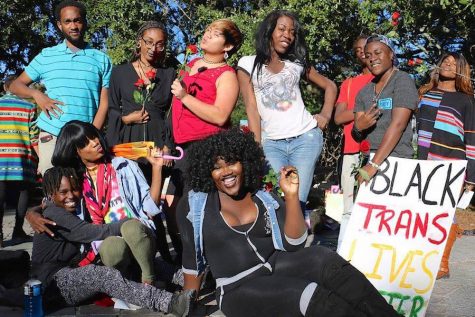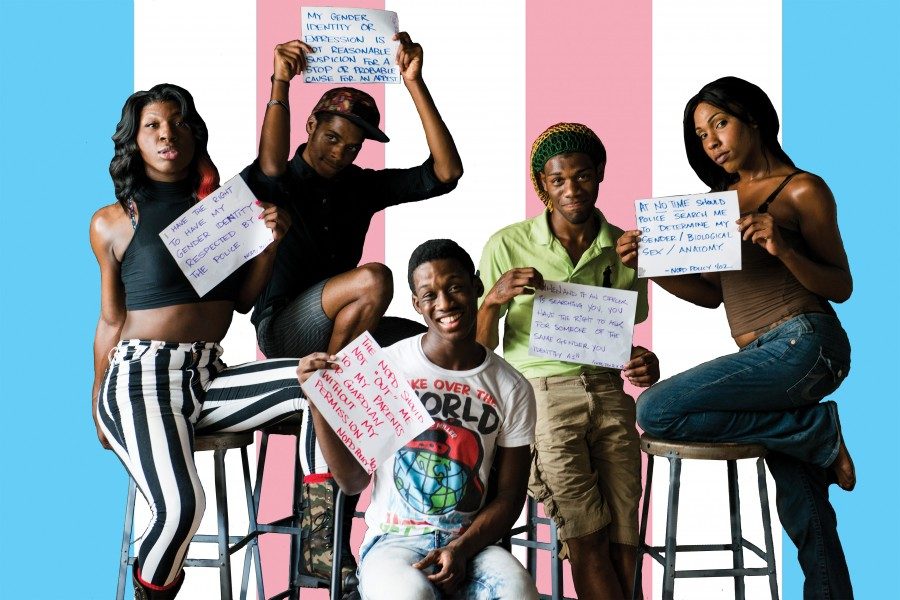Newcomb adds digital archives to document LGBTQ+ history
Courtesy of BreakOUT! records, Newcomb Archives and Vorhoff Library Special Collections, Illustration by Margaux Armfield | Art Director
The Newcomb Archives at the Newcomb Institute is diversifying its historical archives by adding its first-ever completely digital-born collection to preserve the history of LGBTQ+ activism in New Orleans.
“Trans history is woefully underrepresented in the historical record,” Sam Stover, archivist for digital initiatives at the Newcomb Archives and Vorhoff Library Special Collections, said. “In fact, there’s a long history of erasing, minimizing or denying the trans community’s existence and impact — even in queer histories.”
The Newcomb Archives at the Newcomb Institute is working to diversify its historical archives by adding its first-ever completely digital-born collection to preserve the history of LGBTQ+ activism in New Orleans.
Founded in 1989, the Newcomb Archives contains records of the history of women and gender minorities in the Gulf South, with a particular focus on activism, dating back to the founding of Newcomb College in 1886.
The Newcomb Archives has teamed up with BreakOUT! to acquire records of the history of youth LGBTQ+ in New Orleans.
Following BreakOUT!’s launch in 2011, the organization has made major contributions to LGBTQ+ activism, empowering LGBTQ+ youth of color and fighting against political harassment and criminalization of trans and non-binary persons in New Orleans.
“… It was immediately obvious … that the collection would be integral to documenting the history of Louisiana’s LGBTQ history, as well as the history of trans activism in general,” Stover said about the addition of the BreakOUT! archives.

Courtesy of BreakOUT! records, Newcomb Archives and Vorhoff Library Special Collections
The partnership, however, began through the LGBT+ Archives Project of Louisiana, which aims to educate the community on LGBTQ+ history by archiving information that can be deposited and accessed, indexing and publishing lists of locations of archives of historical LGBTQ+ materials and developing financial resources for the preservation of such collections.
“We facilitate donations to area repositories,” LGBT+ Archives Project President Frank Perez said. “We also do public programming throughout the year. We have public workshops and lectures and talks. The other way we do it is we also have a grant program to give money to LGBTQ researchers.”
Stover also said he believes the role of the project is to preserve the history of the LGBTQ+ community.
“Part of the LGBT+ Archives Project’s mission is to ensure that papers and artifacts documenting these events and organizations, as well as any other aspect of Louisiana’s queer history, are included in our state’s libraries, archives and museums so that our history is not forgotten,” Stover said.
Louisiana’s LGBTQ+ history goes back to the first written reference to homosexuality in New Orleans in 1724. The archives include information about everything from the founding of gay and lesbian bars to gay Mardi Gras krewes to festivals such as Southern Decadence.
Setbacks in the community, however, are also included in the information that people can access, such as the New Orleans Police Department superintendent declaring homosexuals the “Number 1 vice problem” in 1955 and the UpStairs Lounge arson attack in 1973, which was one of the deadliest attacks against queer people in American history.
What makes this addition to the Newcomb Archives from BreakOUT! so groundbreaking, however, is the digital aspect of the collection. According to Chloe Raub, head of archives and special collections, though having a digital aspect of the archives is a major breakthrough that will increase accessibility to the information, preserving history will always require new forms of preservation.
“We tend to think of digital records as being impervious, when really they’re as susceptible to decay and loss as any other records, and there’s the added issue of format support, i.e., even if digital information survives, the tools we use to access it may not,” Raub said. “I hope that BreakOUT!’s decision to donate their records will inspire younger individuals and other, relatively newer organizations (including student groups) to consider preserving their own records.”
In terms of the history archived by the Newcomb Institute, students can learn about a narrative in Louisiana that is set apart from the rest of the country.
“Unlike the national women’s movement and other regional women’s movements of the ’60s, ’70s, and early ’80s, Louisiana’s second wave women’s movement was primarily led by queer women,” Raub said.
The archives, however, have not always addressed all of the intersections of the history of women who identify outside of the cis-gender, heterosexual, white identity.
“… Institutions that record history should also dedicate resources to making sure that they’re not ‘straight-washing’ history and showing all sides of it,” Lydia Bell, Tulane sophomore and Gender Exploration Society president, said.
At a university like Tulane that has historically lacked gender and racial diversity, the integration of Newcomb College in 1918 as an institution dedicated to the education of women was significant.
Historically, however, Newcomb College has also excluded non-white women. In a donation to Tulane that motivated the founding of Newcomb College, Josephine Louise Newcomb specified that her contribution should be used specifically for the “higher education of white girls and young women.”
The university refused to admit people of color until a court case that led to the desegregation of Tulane in 1963. The segregation of Tulane parallels the historical lack of representation of people of color, especially those in the LGBTQ+ community, in Newcomb Archives and more generally in recorded history.
“Archives are also often a site of racial exclusion,” Stover said. “My colleagues and I have had a number of frank conversations about Newcomb College’s historical exclusion of non-white women and gender minorities, and we’ve come to the conclusion that while this may be our heritage, we don’t want it to be our legacy.”
With the inclusion of transgender people of color’s struggle for equality specifically in Louisiana in the digital archives, the Newcomb Archives is working to collect and preserve an important and often neglected part of history. Expanding the records included in these archives helps to shed light on the oftentimes overlooked history of LGBTQ+ activism, especially of trans people of color who are particularly at risk.
“It’s pretty hard to find accurate and detailed LGBT history,” Bell said. “Archives and records help this generation and the generations after us connect to the people who did so much work for the community, most of it thankless and incredibly dangerous.”
By including LGBTQ+ history in the Newcomb Archives, students who identify with this community on campus may believe that an institution that once focused strictly on the education of cisgender males has grown to understand and value the contributions and individuals represented in the LGBTQ+ community.
“While of course I see this collection as being significant in its own right because of the powerful work BreakOUT! has done … I also hope that by actively working to build a more inclusive and holistic historical record more people, and especially Tulane’s LGBTQ+ campus community, will be able to see themselves and their communities represented in archives,” Raub said.
Your donation will support the student journalists of Tulane University. Your contribution will allow us to purchase equipment and cover our annual website hosting costs.



